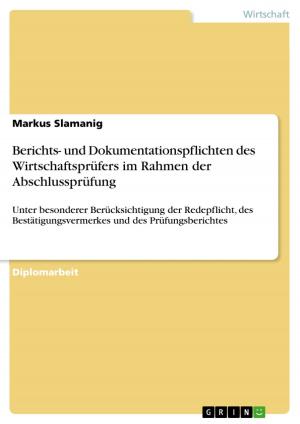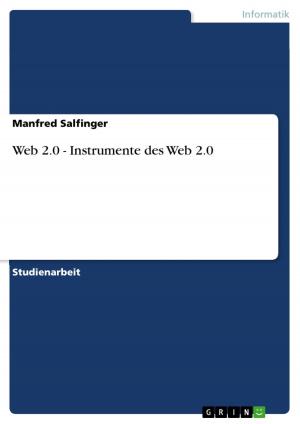Intercultural management in Argentina / Business Communication
Business & Finance, Management & Leadership, Management| Author: | Armin Gruwe | ISBN: | 9783638338578 |
| Publisher: | GRIN Verlag | Publication: | January 13, 2005 |
| Imprint: | GRIN Verlag | Language: | English |
| Author: | Armin Gruwe |
| ISBN: | 9783638338578 |
| Publisher: | GRIN Verlag |
| Publication: | January 13, 2005 |
| Imprint: | GRIN Verlag |
| Language: | English |
Essay from the year 2004 in the subject Business economics - Business Management, Corporate Governance, grade: A, Anhalt University of Applied Sciences (Southern Polytechnic State University), course: Culture and Society, 12 entries in the bibliography, language: English, abstract: This study is orientated to German Managers and employees and tries to show and explain the differences between business customs of these two countries. The reason is the importance of the trade between Germany and Argentina and that these numbers with more cultural awareness maybe could be increased. First, a 'model' of the typical Argentinean is made in Chapter 2. This includes some stereotypes, but this is inevitable for this work. It is assumed that the typical Argentinean will rarely deviate from this inherit pattern. The attitude towards leadership, time, task orientation, etc. is examined. On this basis in Chapter 3 different situations in business between these cultures are explained: How should a German manager in Germany handle and work with employees from Argentina? How can a German manager work successful in Argentina with a group of Argentineans? What considerations are necessary for a successful contract negotiations? A short summaries finalies the work.
Essay from the year 2004 in the subject Business economics - Business Management, Corporate Governance, grade: A, Anhalt University of Applied Sciences (Southern Polytechnic State University), course: Culture and Society, 12 entries in the bibliography, language: English, abstract: This study is orientated to German Managers and employees and tries to show and explain the differences between business customs of these two countries. The reason is the importance of the trade between Germany and Argentina and that these numbers with more cultural awareness maybe could be increased. First, a 'model' of the typical Argentinean is made in Chapter 2. This includes some stereotypes, but this is inevitable for this work. It is assumed that the typical Argentinean will rarely deviate from this inherit pattern. The attitude towards leadership, time, task orientation, etc. is examined. On this basis in Chapter 3 different situations in business between these cultures are explained: How should a German manager in Germany handle and work with employees from Argentina? How can a German manager work successful in Argentina with a group of Argentineans? What considerations are necessary for a successful contract negotiations? A short summaries finalies the work.















